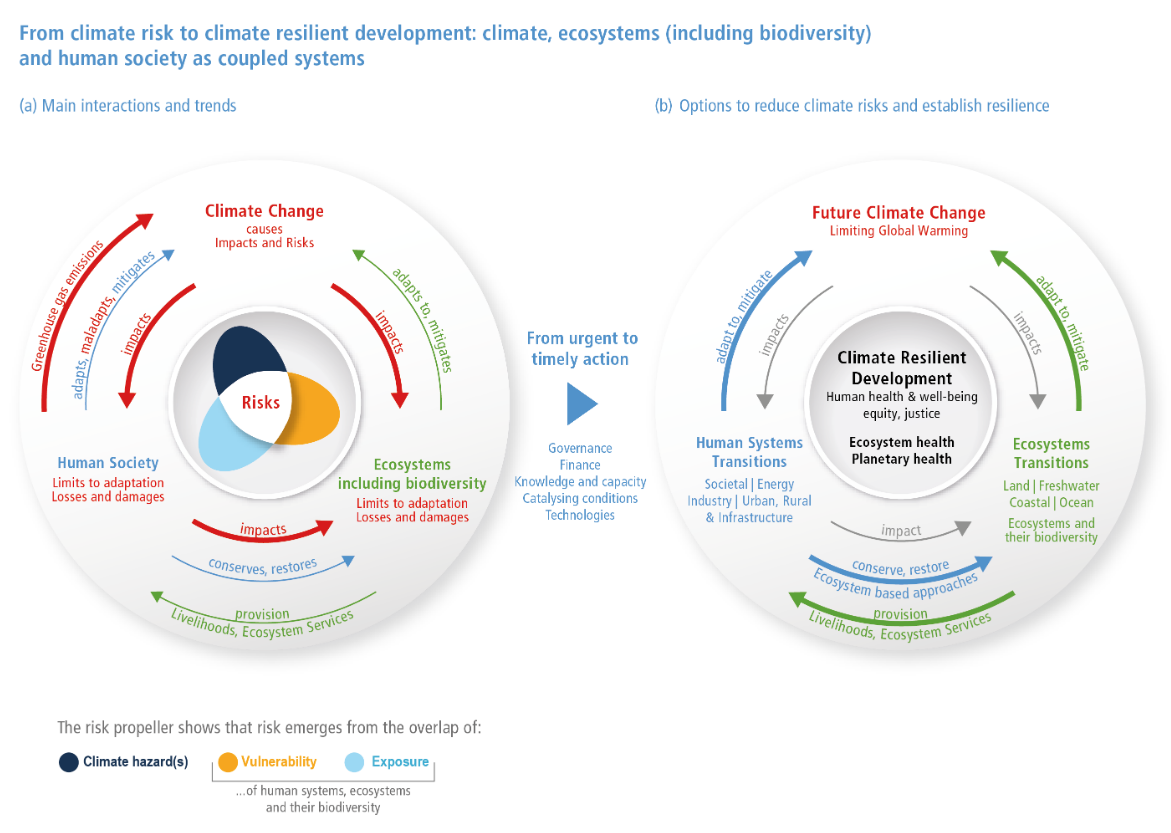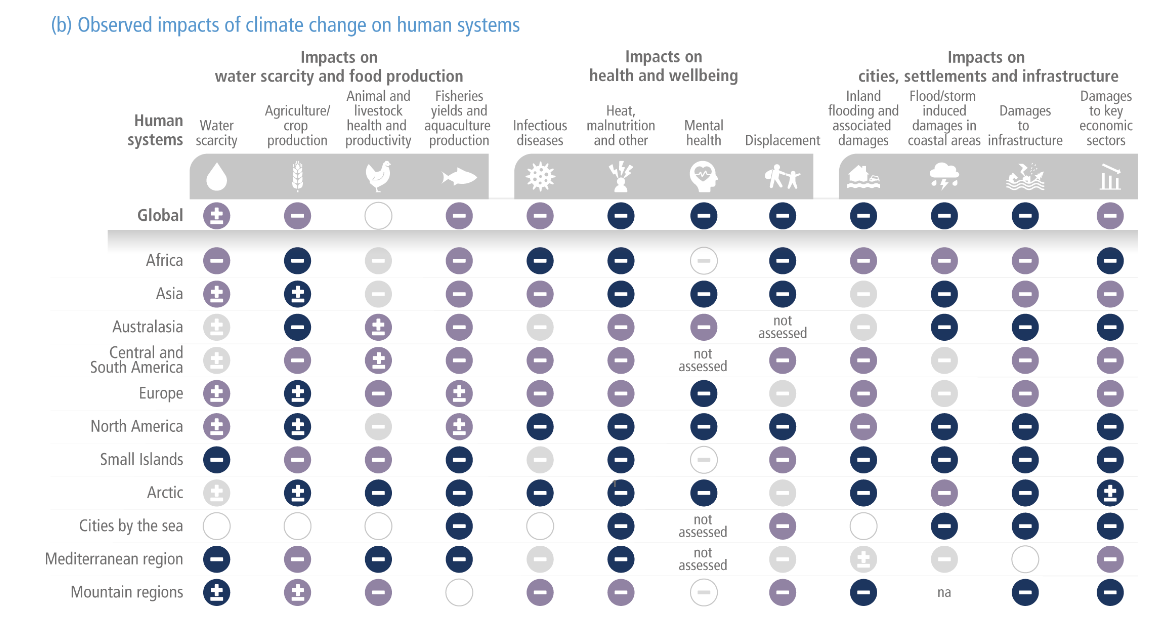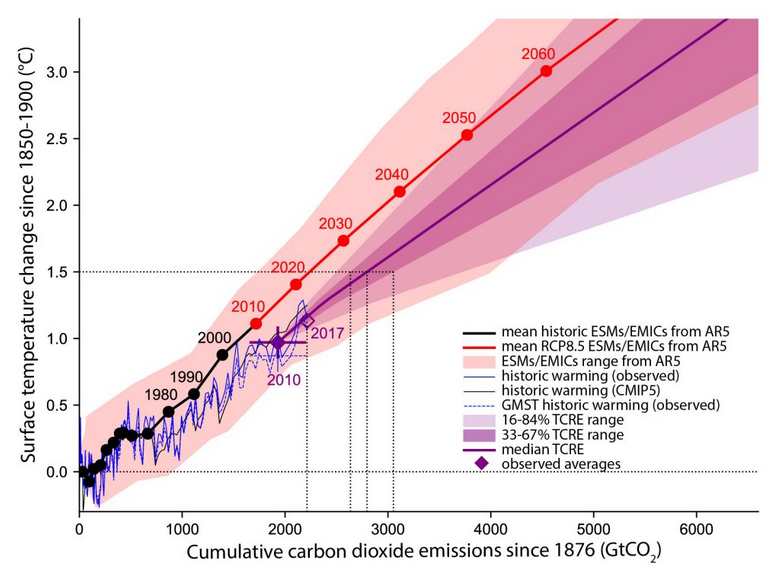
On February 27, with very little fanfare or media attention amid the escalating war between Russia and Ukraine, the Intergovernmental Panel on Climate Change (IPCC) issued the next update in their series of Special Reports, a report titled, Climate Change 2022: Impacts, Adaptation and Vulnerability.
This new report, Climate Change 2022: Impacts, Adaptation and Vulnerability, focuses on the interdependence of climate, ecosystems, biodiversity, and human societies and integrates knowledge more strongly across the natural, ecological, social and economic sciences than earlier IPCC assessments. The assessment of climate change impacts and risks as well as adaptation is set against concurrently unfolding non-climatic global trends e.g., biodiversity loss, overall unsustainable consumption of natural resources, land and ecosystem degradation, rapid urbanisation, human demographic shifts, social and economic inequalities and a pandemic.
 Yet again, the authors prepared a Summary for Policymakers which summarizes quite a lot of the rather dense research and findings but this report is a mishmash of interdependencies which are extraordinarily difficult to evaluate. For example, what in the world does this graph show? We have no idea.
Yet again, the authors prepared a Summary for Policymakers which summarizes quite a lot of the rather dense research and findings but this report is a mishmash of interdependencies which are extraordinarily difficult to evaluate. For example, what in the world does this graph show? We have no idea.
As another example, take a look at the below synthesis chart labeled “(b) Observed impacts of climate change on human systems.” Even after extensive studying, one cannot have a very clear idea of what it all means, except broadly bad news, that virtually every rating for impacts on food, water, health, cities, settlements, infrastructure and economic sectors show negative impacts from climate change. As an investor, this is extremely worrisome.

(Note: the last IPCC report was issued in November 2018 entitled Global Warming of 1.5 ºC. and advised the world’s leader on what was needed to keep global warming limited to 1.5 °C above pre-industrial levels and the consequences of not doing so. Most importantly, we learned that to prevent unimaginable ecologic harm, we’d need to halve current emissions by 2030 (then a 12-year time frame) and completely eliminate emissions by 2050 (then a 32-year time frame).
The IPCC is the Intergovernmental Panel on Climate Change, the United Nation’s premier body for assessing the science related to climate change and advising the leaders of the world’s nations about what should be done about climate change. Through the auspices of legions of volunteer scientists and experts around the world, the
 The IPCC is the Intergovernmental Panel on Climate Change, the United Nation’s premier body for assessing the science related to climate change and advising the leaders of the world’s nations about what should be done about climate change. Through the auspices of legions of volunteer scientists and experts around the world, it prepares comprehensive, multi-faceted Assessment Reports about knowledge on climate change, its causes, potential impacts and response options. The IPCC also produces Special Reports, which are an assessment on a specific issue, and Methodology Reports, which provide practical guidelines for the preparation of greenhouse gas inventories. IPCC has been studying the causes and the impacts of climate change since1988. They alternate between working on Assessment Reports and convening global leadership in conferences, called “COPs,” for “Conference of the Parties,” the parties being the nations of the world.
The IPCC is the Intergovernmental Panel on Climate Change, the United Nation’s premier body for assessing the science related to climate change and advising the leaders of the world’s nations about what should be done about climate change. Through the auspices of legions of volunteer scientists and experts around the world, it prepares comprehensive, multi-faceted Assessment Reports about knowledge on climate change, its causes, potential impacts and response options. The IPCC also produces Special Reports, which are an assessment on a specific issue, and Methodology Reports, which provide practical guidelines for the preparation of greenhouse gas inventories. IPCC has been studying the causes and the impacts of climate change since1988. They alternate between working on Assessment Reports and convening global leadership in conferences, called “COPs,” for “Conference of the Parties,” the parties being the nations of the world.
Click here to go to the IPCC’s website, where with a lot of digging, you can find everything they have published in their 34 years of existence and here to read the latest IPCC Special Report, Climate Change 2022: Impacts, Adaptation and Vulnerability.